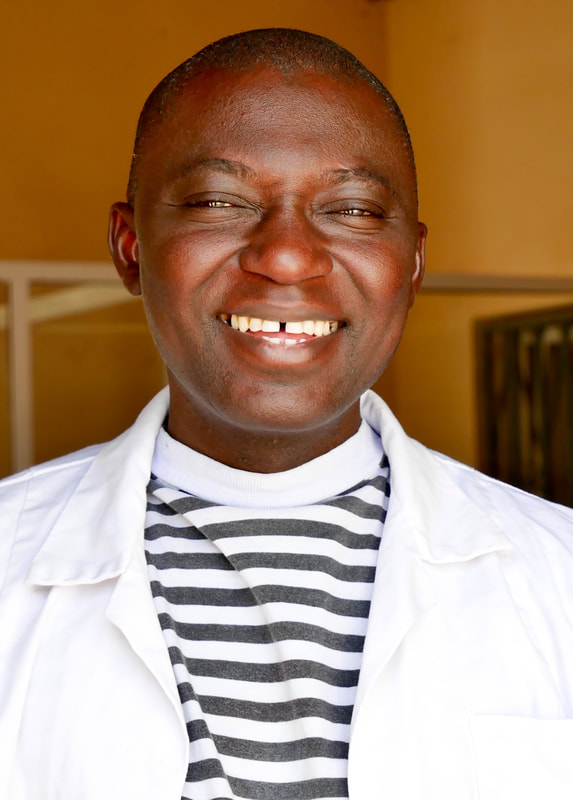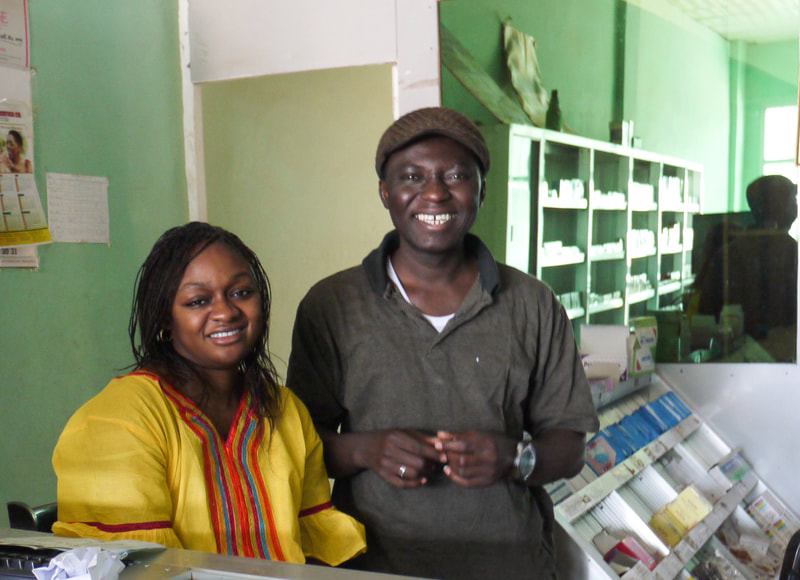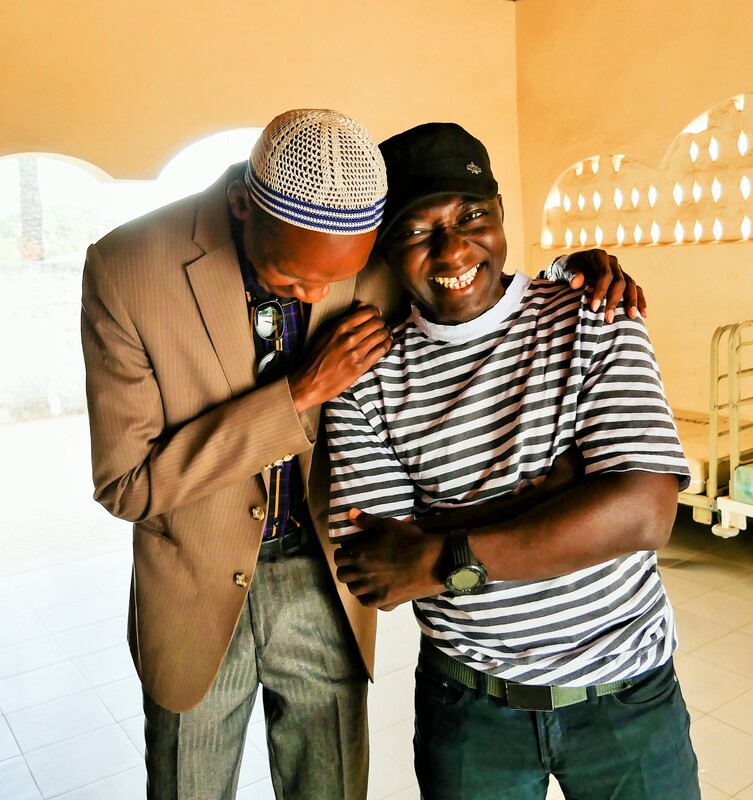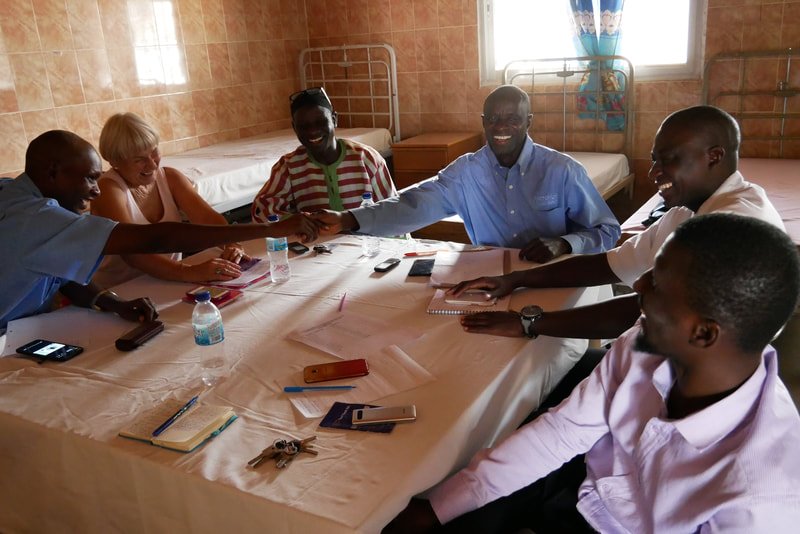|
On her recent visit to Gambia, Dee Bixley interviewed nurse Dembo Njie’s about his journey to the Trust's Wellingara Clinic. How did your nursing career begin? I studied for three years at the School of Nursing, for my SRN [State Registered Nurse] and passed all examinations. Then I was employed by the Government at Basse Hospital, where I worked for seven years. For three of those years I was in the Pharmacy, dealing with outpatient emergencies, and gaining excellent pharmaceutical experience. Then one day the Pharmacy Director told me he planned to open his own pharmacy and he’d like me to join him. It would mean that I’d have to quit working for the Government, but I thought “Wow: he must think well of me!” It was an interesting opportunity - so I agreed and left the Government. It took us about three months to prepare and stock the pharmacy, in the Kombo area of Banjul. I became Senior Manager and worked there for ten years. Do you remember when you first met Kira? Oh yes! I met Kira when she came to the pharmacy to purchase wholesale medicines. My boss knew her well and told me afterwards that her husband had passed away. I was struck by the way she knew Gambians, the way she spoke about them, wanted to help them. Over the years whenever she went to the UK she would leave cash with me. “This is for my people,” she’d say. It was Kira’s way of making sure that if her neighbours needed help, and couldn’t afford medication, there would be money here waiting. I told my brother: “This Kira - she is our sister! She is Gambian!” I have heard it said that people love you. Why is that?
When it comes to health, I respond promptly and do my utmost, whatever the ailment is. If there’s a social problem - for example a wound - there are different sorts of wounds and some need daily attention. If they are infected, I act immediately and monitor them. When I see crazy wounds, I get crazy about curing them. I think that’s why people love me - “When Dembo touches us, we are well again!” During the rainy season, malaria, pneumonia, gastro-enteritis and malnutrition are rampant and the Clinic is full. January, February and March are quieter months, but we always aim to meet our targets. How did you react when Kira asked you to leave the pharmacy and run a Health Clinic for the Trust? That blew me apart. The thought of leaving the Banjul people was very difficult, and they didn’t want me to go. They couldn’t understand why I was even thinking about it. But finally, I realised: this is about me! I am a nurse! I wanted a nurse’s challenges again; to use my knowledge and make a difference. When I came here to Wellingara Clinic things changed - let’s just leave it at that! We took over from another charity and the place was sinking. But in our first month the patient numbers increased hugely and that continues. People have confidence in us. I always say to the team: “Let us do good for the patients and they will always come back to us.” A few people complained that the medication cost too much - but they became well! So now they say, “It might be expensive but it’s very good!” It has been a remarkable turnaround and the patient numbers are still going up and people are confident. What would you most like to see achieved for the health of Gambians? My wish is for Gambians to realise the importance of sensitization. Getting regular health check-ups at your nearest health centre or clinic – this is crucial. And not to be scared, because if there is something that needs attention, it is best to catch it early. I cannot stress this enough. Is it helpful to have a healthy sense of humour in Gambia? Definitely! Humour is essential in The Gambia! Thank you, Dee! Continue your efforts!
0 Comments
Your comment will be posted after it is approved.
Leave a Reply. |
News DiaryThe News Diary is a regular account of all that is happening at The African Oyster Trust. Please pop back for regular updates, follow us on Twitter or sign up for our RSS feed to have the latest news sent straight to your computer! AuthorsThe news diary is written by a number of people close to the work of the African Oyster Trust, including founder James Holden, his co-directors, trustees and volunteers. Archives
February 2024
Categories
All
|





 RSS Feed
RSS Feed